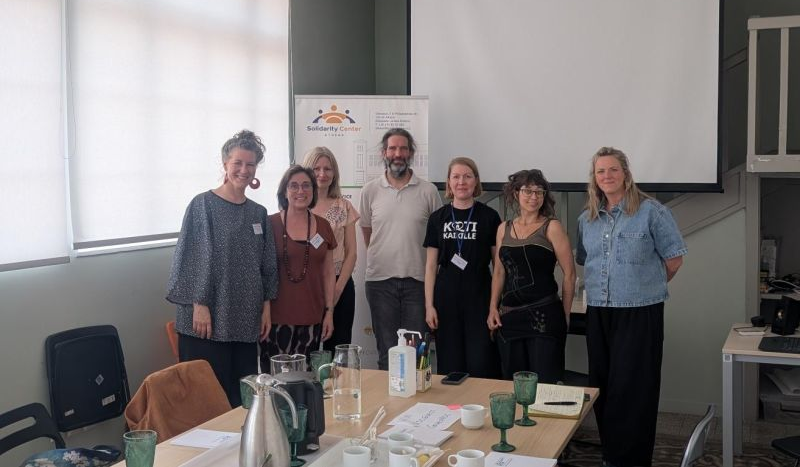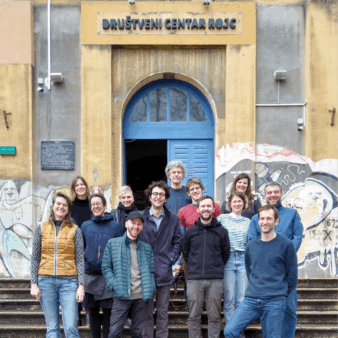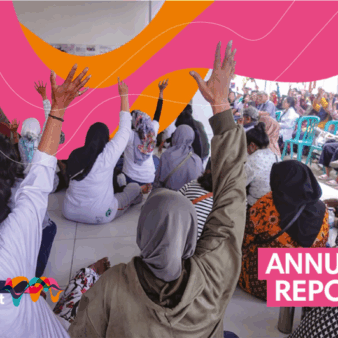
In this blog, Ella Hancock, Programme Manager at World Habitat, discusses the effects of populist and right-wing politics on homelessness organisations. At the recent FEANTSA Forum in Athens, colleagues shared how shrinking civic space, rising anti-migrant rhetoric, and cuts to support systems are threatening their work. From Hungary’s funding restrictions to Finland’s policy backslide, the political climate is worsening. Yet local alliances and grassroots resilience offer hope. This blog reflects on the urgent need for solidarity and advocacy in defending housing as a human right.
At a recent session at the FEANTSA Forum in Athens, I was struck by how many organisations across Europe are navigating not just the challenge of delivering homeless services but straining under the increasing pressure from right-wing or populist governments. They are fighting to survive under policies that restrict, silence, or penalise their work. Increasingly we are seeing a shift backwards to blaming individuals for homelessness, slashes to welfare and housing support, rising barriers to securing external funding – especially from abroad – and an ever-louder anti-immigrant narrative that often excludes migrants from services and statistics entirely.
These challenges are not limited to laws or policies. They are about a darkening political climate – one that squeezes civil society, undermines independent advocacy, and creates impossible choices for those delivering support. Many organisations now work in fear of saying too much, just to stay open.
Hungary
Hungary has been under a populist government since 2010. Since then, many of the civic freedoms once taken for granted have been eroded. One of our long-standing partners, From Streets to Homes Association, continues to support people experiencing homelessness while deliberately avoiding state financing: By remaining independent, they have been able to help those that would otherwise be ignored by government funding streams. But with recent US AID cuts and changes to UNHCR support, even this limited power to help those most in need is disappearing.
While we were at the Forum, a new proposed law was announced in Hungary that would prevent NGOs from accepting foreign funds if they criticise the government. It’s the latest in a series of restrictive moves. Rough sleeping has been illegal since 2018. Whilst rarely enforced now due to cost, the law remains—a threat to both people experiencing homelessness and those working with them.
There is a strategy at play here: divide the sector. The government pours money into the Church, which now receives 170% of the funding levels given to NGOs. This makes it harder for civil society to speak with one voice.
Despite these challenges, there are pockets of resistance. Boróka Fehér of BMSKI shared practical strategies for survival: building local and international alliances and developing innovative service models.
Finland
Finland has long been held up as the gold standard – it’s policies and political commitment to Housing First meant that for the last decade it has been one of the only European countries to see a reduction in homelessness. But after two years under a right-wing government, it is seeing a backwards slide. Homelessness is rising for the first time in a decade. Cuts to social benefits, support for NGOs, and a slow dismantling of the state housing system are all playing a role.
As Juha Kalia of the Y-Foundation put it: “Homelessness is a choice. We choose it with our policies.”
Broader Concerns Across Europe
Elsewhere, it’s a similar story. We heard about Italy, where more than 430 people died while homeless in 2024. Many of these deaths were due to extreme vulnerability, not just weather. Despite a strong rights-based framework built over the past decade, national strategies and access to EU funds, gaps remain—particularly around welfare eligibility, outdated residence laws, and the absence of a national housing policy.
In Belgium, civil society is watchful: the government has shared a lot of right-wing rhetoric but so far taken little action. In Slovakia, NGOs report being labelled “foreign agents”, with increasing police action against people experiencing homelessness. In some districts of Bratislava, forced evictions are carried out with little notice and no coordination with support services.
A Growing Risk in More Moderate Settings
Perhaps most worrying is how this political logic is spreading, even in countries where centrist or progressive governments are still in place. While Hungary is perhaps the starkest example, the wider trend is concerning. We’re seeing a political shift in parts of Europe, where the language of ‘personal responsibility’ is replacing systemic thinking. Funding is shrinking, and with it, the space for innovation and rights-based support.
Populist parties are gaining traction—and with them, the idea that homelessness is primarily a personal failing, not a systemic one. Migrants and undocumented people are increasingly framed as culpable, undeserving or beyond the remit of support.
We heard from several organisations working in such contexts—where governments remain nominally supportive, but where opposition narratives are shaping public opinion, and in turn, local and national decision-making. This chilling effect is real. It shapes who gets counted, who gets helped, and who gets ignored.
Despite these pressures, hope remains. Local governments in cities like Helsinki, Bratislava and Budapest are continuing to work with NGOs on inclusive, housing-led strategies. Many are using EU funding and local powers to resist national narratives. Partnerships—both local and international—are vital.
And homelessness organisations continue to work with dignity and courage. They adapt, resist, and support people on the margins, even as the ground beneath them shifts.
What became clear in Athens is that homelessness is increasingly shaped by politics, not just policy. The risk is that people experiencing homelessness—and those who work to support them—are becoming collateral damage in wider ideological battles.
Now, more than ever, solidarity matters. Local, national, and international alliances must strengthen. Civil society must be protected. Because homelessness should never be used as a political weapon.
CTA – Join policymakers, frontline workers, researchers, and advocates at the upcoming World Habitat conference on homelessness and affordability in London on 12 June, as we come together to promote effective policies to tackle homelessness.
Share strategies, build alliances, and stand in solidarity against the rising tide of exclusion.




Join the discussion